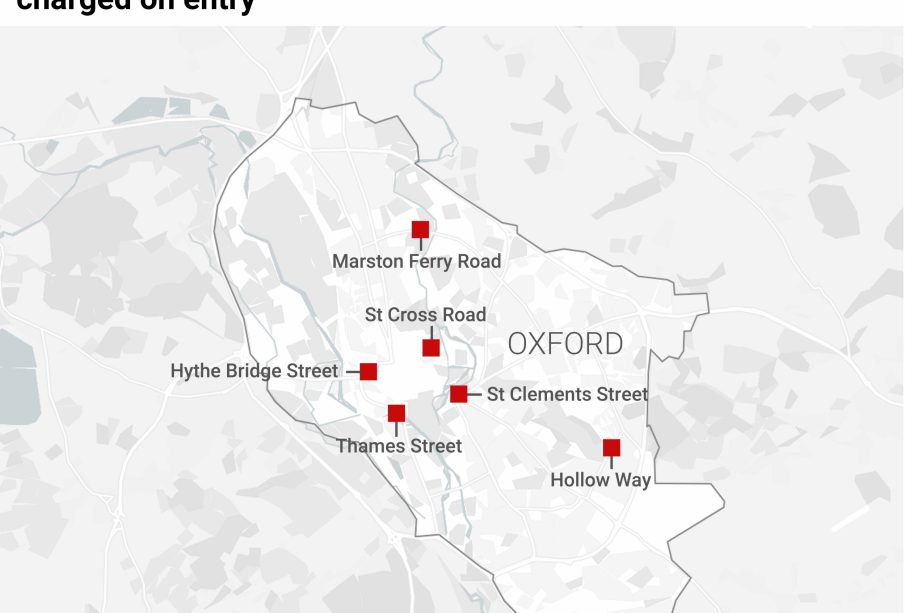Oxford’s New Congestion Charge: A Bold Step Towards Sustainable City Transport

A New Era for Oxford’s Traffic Management
Oxford is set to implement a £5 daily congestion charge from autumn 2025, as part of a comprehensive strategy to reduce city centre traffic and enhance public transport reliability. This measure will serve as an interim solution until permanent traffic filters are established in 2026.
Key Features of the Scheme
The congestion charge will be implemented at six strategic locations across Oxford, including Hythe Bridge Street, St Cross Road, Thames Street, St Clement’s Street, Marston Ferry Road, and Hollow Way. The charge will be in effect between 7am and 7pm daily on the first four streets, while Marston Ferry Road and Hollow Way will operate during morning and evening rush hours, Monday through Saturday.
The system will utilize Automatic Number Plate Recognition (ANPR) cameras to monitor vehicles passing through these points, with drivers required to pay the £5 charge online or by phone before midnight the following day. Notably, even electric vehicles will not be exempt, as the policy’s primary focus is on reducing overall traffic volume rather than emissions.
Expected Benefits and Exemptions
The council projects ambitious outcomes from this initiative, including a 20% reduction in city centre traffic, a 50% decrease in congestion on Hollow Way and Marston Ferry Road, and a 10% improvement in bus journey productivity.
The temporary congestion charge will only apply to cars, with all other vehicles exempt from payment and permit requirements. Special permits will be available for specific groups, including community health and care workers, carers, blue badge holders, and mobile traders, allowing them to pass through the charge locations without incurring fees.
Public Response and Future Plans
The scheme has faced significant public opposition, with a petition against it gathering over 13,500 signatures. Critics, including the Oxford Independent Alliance, have described the policy as “unfair, burdensome, and utterly misguided,” emphasizing that the public reaction represents more than just a vocal minority.
Any surplus income from the scheme will be allocated to travel improvements, such as reduced bus tickets and park and ride parking fees. The congestion charge is part of a broader transportation strategy, with plans for a Zero Emission Zone (ZEZ) to be implemented in September 2027, demonstrating Oxford’s long-term commitment to sustainable urban mobility.









